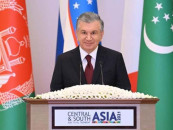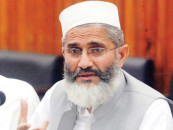Syria’s hapless ‘Arab Spring’
The world sees the protesters as youthful people hardly aware of any Islamist endgame to what they are doing.

The government of President Bashar al-Assad has started killing ruthlessly and is today the most savage of the Arab Spring manifestations after perhaps Libya. President Bashar al-Assad’s father, Hafez al-Assad, who ruled for 30 years, belonged to the minority Alawite community and ruled with an iron fist. In the process, his detractors accused him of trying to destroy the trends of the Sunni majority of Syria, which historically has not had good relations with the Alawites. The high-water mark of is cruelty as a despot came in 1982 when he put to the torch the entire city of Hama where the Muslim Brotherhood was raising its head among the city’s Sunni population.
The three Syrian communities were depoliticised following Hama as a means of making them live together peacefully. Under Bashar al-Assad, Syrians were allowed modern facilities in communications with real freedom. Like other Arab states, Syria has a youth bulge with no jobs. It is chafing under restrictions without knowing how they will turn their uprising into democracy, more or less like their Egyptian counterparts. The older generation of the majority Sunnis of the country, it could be said, became doubtful of democracy’s efficacy, given what it had done to neighbouring Lebanon, where Hizbullah participated in elections as an army rather than as a political party; and in neighbouring Iraq where elections brought about a three-way deadlock between Shia majority, Sunnis and non-Arab Kurds.
There is a sectarian war going in on the old grand Syrian region and most Sunni warriors going in from the peripheral states are Saudi. Syria is a funnel to Arab youths — many recruited by al Qaeda — ready to die fighting against the Iran-backed Shia in Iraq. Syria’s own Sunnis — their only inspiration being Islam — are awakening to a new sense of freedom, which is a lot of things except democracy. The Arab Spring in Syria is more likely to follow the extremely flawed democratic model of Lebanon and Iraq; or, as far as the minorities are concerned, the Muslim models elsewhere, including Pakistan.
The world, including the Arab League, has called on Syrian authorities to stop acts of violence against protesters. The world sees the protesters as youthful people hardly aware of any Islamist endgame to what they are doing. The Sunni Syrians want to come into their own as a majority that deserves to rule. But President Bashar al-Assad thinks he is dealing with “outlaws and convicts who stage highway robbery and seal off cities and terrorise the population and to stop them is a national duty.”
Those on the outside who want change in the Middle East know that the Islamists will come on top in the end but still want the transition to happen because dictatorship, even when ‘modern’ like that of the Baath Party of Syria, holds back evolution which may be tough and uncertain. Pakistan began as a democracy but has steadily and gradually succumbed to Islamisation that is today hurting not only its minorities but also those Muslims who considered outside of the majority fold.
The peaceful part of the Middle East, so to speak, is not exactly democratic but a conglomeration of market states in the Gulf ruled by what could be called benevolent dictatorships. Of course, this is not to say that the people of the region do not want democracy and not the monarchy they find in their midst. On the other hand, we have the Salafists in Egypt who seem to be killing the Copts and the Salafist-Nahda in Libya who seem to be getting ready to step into the vacuum once Qaddafi leaves.
Published in The Express Tribune, August 10th, 2011.



















COMMENTS
Comments are moderated and generally will be posted if they are on-topic and not abusive.
For more information, please see our Comments FAQ